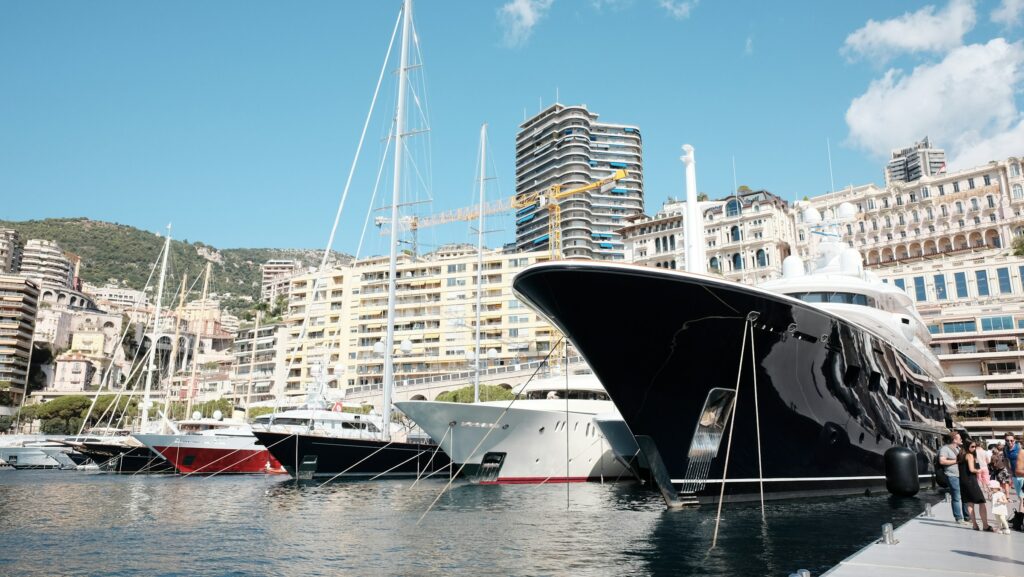Global yachting market sees 11% growth, reaching €33bn

The global yachting market continues to grow, according to a new report, reaching €33bn over the most recent available year, over €25bn of which derived from the superyacht segment.
The Italian boatbuilding industry has also recorded an expanding trend, having increased by 20 per cent on the previous year with a turnover of €4.4bn. As is the case on a global scale, yards active in the production of superyachts make up a significant share of Italy’s production. Italy is the undisputed world leader in this segment, with a share of 54 per cent in terms of volume and 31 per cent in terms of order book value.
This is a snapshot of the global yachting market, taken from a new joint study by the Italian Marine Industry Association and Deloitte, The state of the art of the global yachting market, released on Monday (15 July 2024).
“Our mission at the Italian Marine Industry Association is to provide our members – a consolidated network representing the supply chain through an impressive nine product segments (from superyachts to marinas) – with the most recent data concerning the industry, the market and the evolution of consumer models,” says Ernesto Lanzillo, private leader for Deloitte Italia.
“This is particularly relevant when it comes to the strong vocation for export demonstrated by the sector’s companies, their determination to increase their responsiveness to rapidly changing global economic scenarios, their ability to penetrate new markets, and their competitive positioning on international markets that follows.
“This is why, for decades now, the Italian Marine Industry Association has made use of its own Market Intelligence and Research Department to publish quarterly studies and provide a research and monitoring function for the sector.
Speaking at the Italian Stock Exchange in Milan on Monday (15 July 2024), Lanzillo presented the second report resulting from the cooperation with Deloitte & Touche. The analysis examines the superyacht global order book figures to an assessment of the sector’s positioning, including potential demand penetration capacity to an outlook assessment for the next few years of Italian shipbuilding and its positioning on international markets.

“This is the most comprehensive study available, aimed at operators, stakeholders and the media,” says Marina Stella, general manager of the Italian Marine Industry Association.
Stefano Pagani Isnardi, head of the Italian Marine Industry Association’s Market Intelligence and Research Department, says: “The yachting sector has remained solid throughout 2023, maintaining the same reactive growth trend that has defined the post-pandemic years: turnover in the industrial segments (boatbuilding and the production of marine equipment and engines) is expected to even exceed the record value of €8bn.
“Among the key factors fuelling this growth is shipbuilding exports, having reached an all-time high in exports of yachting units produced in Italy in 2023, exceeding the significant threshold of €4bn, with the USA continuing to be the most important market for our shipyards on the global market.”
Lanzillo continues: “The boating market continues its global expansion, driven by the markedly significant growth of the superyacht segment, which is predicted to continue its role as the main driver of international growth over the coming years.
“This is good news for [Italian] companies that, despite often being small and medium-sized businesses, still manage to contribute to Italy’s undisputed leadership in the production of this type of unit thanks their passion and true devotion to quality.”
A global yachting market on the rise: +11% growth and €33bn in turnover
The global new build market reached €33bn in 2022, up 11% year-on-year, consolidating a steady rate of expansion that has recorded a compound annual growth rate (CAGR) of +10 per cent since 2014.
This significant increase is due in part to a growth in prices but depends primarily on the increased demand of new buyers.
Geographically, North America and Europe dominate the market, accounting for approximately 70 per cent of the global market. In terms of propulsion, motorboats represent approximately 90 per cent of the market. In North America outboard engines take the lead at approximately 70 per cent, while in Europe inboard engines represent about 50 per cent.
The superyacht market: +21 per cent growth for a value of €25bn

During the most recent year to be analysed, the global superyacht order book reached 600 units: up 21 per cent compared to the previous year, the value of which stands at €25.3bn and 60 per cent of which is generated by the over 60m segment.
The demand for new orders is primarily fuelled by the segment representing units measuring between 30 and 40m, with yachts built using steel and composite materials, thanks to the growing number of new buyers.
Although the superyacht and ‘high-end’ yacht segment represents a niche within the luxury market (approx. 1 per cent), a remarkable compound annual growth rate (CAGR) since 2019 of +5.4 per cent was still recorded. In terms of margins, the yachting industry finds itself below the average of other luxury sectors. However, a continuous recovery trend in profitability has been underway over the course of recent years, with a 5.5 per cent increase from 2015 to 2022.
Ownership & market penetration
In 2022, a slight drop in potential demand was recorded (4 per cent fewer “billionaires” in 2022 against 2021) while the superyacht order book shows an opposite trend (+21 per cent in 2022 against 2021).
However, the superyacht market continues to present a limited degree of penetration compared to its potential demand (approx. 3 per cent), revealing significant untapped potential. Over the coming years, U-HNWI growth forecasts are positive (+5 per cent CAGR 23-28) and primarily driven by emerging markets.
M&A across the global yachting industry
From 2021 to 2023, the yachting market witnessed approximately 400 M&A deals, most of which were concentrated in the downstream segments of the value chain (around 57 per cent) and took place primarily in North America (around 58 per cent).
Marine operators accounted for approximately 60 per cent of these M&A deals, while financial investors contributed around 20 per cent, marking a slight increase on the previous period analysed (+3 per cent).
In Italy, 30 M&A deals took place, of which around 50 per cent were related to marine components and equipment, while approximately 40 per cent involved shipyards active in the construction segments of the industry.
Italian shipyards: a growing trend
The production value of the Italian shipbuilding industry was worth approximately €4.4bn in 2022, an increase of 20 per cent over the previous year. 70 per cent was generated by yards that are also active in the production of superyachts.
Compared to the global market, Italian shipyards are focused primarily on the production and sale of inboard boats (91 per cent against 52 per cent), registering a compound annual growth rate of 15.6 per cent over the period between 2017 and 2022.
The export figure recorded is also significant with approximately 90 per cent of all domestic production destined for international markets.
A positive outlook
With regards to the year 2023 (of which final figures are not yet available but will be presented by the Italian Marine Industry Association on 19 September 2024 during the 64th Genoa International Boat Show), growth in value of the Italian shipbuilding production segment (new build) is estimated to reach an average increase of between 5 per cent and 15 per cent, driven in part by the delivery of orders collected throughout the Covid pandemic period.
Moreover, growth in the global retail yacht market (new build) is expected to reach +8 per cent, subsequently normalising over the course of the following three years with a predicted compound annual growth rate of 6 per cent between the years 2024 and 2026.
Large yachts will act as the most significant driving force behind market growth, while the craft boats segment is expected to slow down. The sailing segment will, instead, continue its positive trend with a growth rate of approximately 3/5 per cent.












